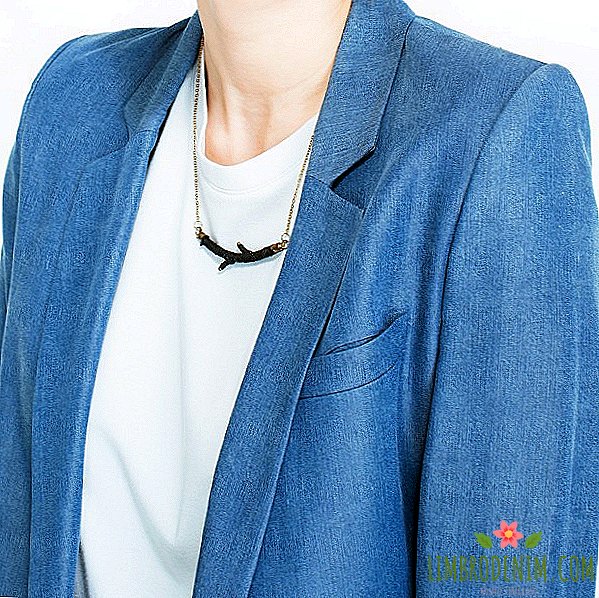Valentina Matvienko and four more women of Russian diplomacy
Text: Natalia Beskhlebnaya
Vladimir Safronkov's recent performance, Deputy Permanent Representative of Russia to the UN, who called out to his British counterpart with the words: "Look into my eyes!" - caused bewilderment even among the authorities. Federation Council Speaker Valentina Matvienko today supported colleagues who compared Safronkov’s manner with the ensign’s behavior, noting that her position is “exactly the same” and she managed to convey it to Foreign Minister Sergey Lavrov.
Opinion Matvienko is also interesting because in this case she comes out from the position of a colleague: she began her state career as a diplomat. This fact, as well as the Ministry of Foreign Affairs legends about her ambassadorial work, are almost lost in the speaker’s colorful biography. About Matvienko and four other famous women, whose ability to negotiate served national diplomacy - in our today's selection.

Valentina Matvienko
Ambassador in Malta and in Greece
Once in Malta as ambassador, Valentina Matvienko first of all ordered to demolish the high blank wall that surrounded the Russian embassy. In response, residents of neighboring houses also demolished their high fences and put up a vase with flowers in greeting. This beautiful story about the beginning of the diplomatic career of today's speaker of the Federation Council may well be true, because she was ambassador in the early 90s, during the formation of new relations between Russia and the Western world.
Journalists recall that Valentina Matvienko forbade subordinates to save: diplomats were made available for a separate car, which in Soviet times was a rare luxury. Matvienko’s diplomacy of the Greek period was remembered by the locals by the fact that she dealt with the garden on the outskirts of the embassy, and in its place appeared a tennis court with a swimming pool.
The publicist Alexander Baunov, who worked for a while at the Foreign Ministry, recalls how during his internship at the Russian office in Greece, he found traces of the economic enterprise of Valentina Matvienko there. Mostly the male team of diplomats existed at a distance from the homeland in accordance with the local climate and customs, faithfully observing the siesta in the hot afternoon hours. Is it worth mentioning that for especially resourceful siesta employees lasted until the end of the working day - exactly until the lady ambassador decided to eradicate this practice decisively.

Zoya Mironova
Ambassador Extraordinary and Plenipotentiary
Zoya Mironova, the second female ambassador to the USSR after Alexandra Kollontai, began working in New York in the years when not only American cigarettes and instant coffee were in the homeland, but sometimes toilet paper could be bought only at the Biro shop for foreigners, and for speculation in currency, capital punishment was imposed.
The revolutionary Kollontai on her way to success threw husbands, participated in demonstrations and hid from the police. Mironova, belonging to a completely different era, made a career, gradually moving up the party ladder. The daughter of the police chief, a chemist by training, she worked for fifteen years at the Scientific Research Institute of Rare Metals, replacing the post of research assistant for the post of Secretary to the Bureau of the CPSU (B) Institute. Then - the position behind the post: secretary, deputy, executor in numerous district committees and executive committees - up to the appointment as a permanent representative on the UN committee. Despite Kollontai's efforts, a woman in the USSR could not make a diplomatic career in another way: the Institute of International Relations, which opened in 1944, was initially only hosted by young men, later girls appeared there, but the unofficial policy of the "male university" remained and women were a minority for a long time . This explains the fact that the second female ambassador appeared in the USSR almost half a century after the first.

Roza Otunbayeva
Ambassador to Malaysia and Brunei Darussalam
"I am a happy person. If a woman was given some opportunity to realize herself, she was given to me in full. I was the ambassador of the superpower," Roza Otunbayeva said in one of her interviews.
Rosa represented the USSR in Malaysia and Brunei Darussalam - small exotic countries in Southeast Asia, on the border of the Pacific and Indian Oceans. She held this position for only a few months in 1990-1991, but these days were the impetus for her entire future unique career. During the formation of an independent Kyrgyzstan, Otunbayeva, using the experience gained, began to integrate her country into world diplomacy, was the first female ambassador to the United States and Great Britain. As a result, Rosa became one of the key figures in the political life of Kyrgyzstan and temporarily occupied the post of president — for the first time a woman became the head of state in Central Asia. In patriarchal Muslim Kyrgyzstan, she was often discriminated against on the basis of gender and gave a contemptuous nickname "ezheshka", which means "aunty", and also called "apche" - "milkmaid". Otunbayeva regularly participates in international projects that support women, and since leaving the presidency, she stressed that she managed to bring women to power in many high positions: the prosecutor general, the chairman of the supreme court, the chairman of the national bank.

Eleonora Mitrofanova
Ambassador Extraordinary and Plenipotentiary
“Her parents named her in honor of Eleonora Roosevelt. My father survived the battle of Stalingrad in adolescence and in 1953 (when Elya was born) decided to express in such an unusual way, in an extremist way, respect for Roosevelt as an ally,” said Alexei Mitrofanova about her sister Eleanor. Mitrofanov.
Eleonora graduated from the Institute of International Relations and received the highest position ever held in the history of Russia by a woman in the Foreign Ministry: she became the first deputy minister. The Kollontai of the Putin era is cited as an example for modern MGIMO students and often speak of her as a woman who successfully combines international service and family care. Mitrofanova is the mother of four children, but the first three were born before the beginning of diplomatic work, and the fourth appeared already at the age of 45 - the possibilities of combining a diplomatic career with motherhood were obviously limited. The ambassador herself spoke about this in a completely human rights spirit: “I gladly recruit women. I know from personal experience that women, especially young, need support. After all, the logic of most personnel decisions is one:“ The young one will come, but will surely go on maternity leave therefore it is better to take a man "".
Zoya Novozhilova
Ambassador to Switzerland
"She has a red flag, tailored in an elegant coat. Zoya is black, her coat is scarlet. Bring the Stendal", as they say in Kutaisi. Once upon a time, Krasnaya Zoya was the secretary of the Komsomol Central Committee, then the secretary of the All-Union Central Council of Trade Unions, and now she is Frau the ambassador. "
So Zoya Novozhilova described in his memoirs journalist Teimuraz Stepanov-Mamaladze, and this short paragraph is full of ironic sexism. Meanwhile, Novozhilova experienced a tremendous surge of attention from the entire diplomatic corps of Europe. Although interest in it was primarily due to interest in the changes taking place in the country, Novozhilova was ambassador to Switzerland from 1987 to 1992. She was called the “new Kollontai” and the second Soviet female ambassador, although in reality she was the third female ambassador of the USSR and the first — the Russian Federation. If Kollontai was establishing international relations at the dawn of the USSR and had to achieve political recognition of the new state, Novozhilova fixed the end of the empire and the long-awaited fall of the iron curtain - the doors of Europe were open to it.
Photo: Wikimedia Commons (1, 2, 3, 4, 5)




